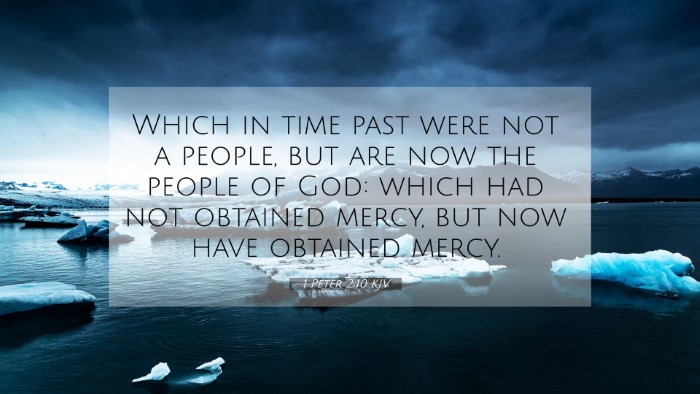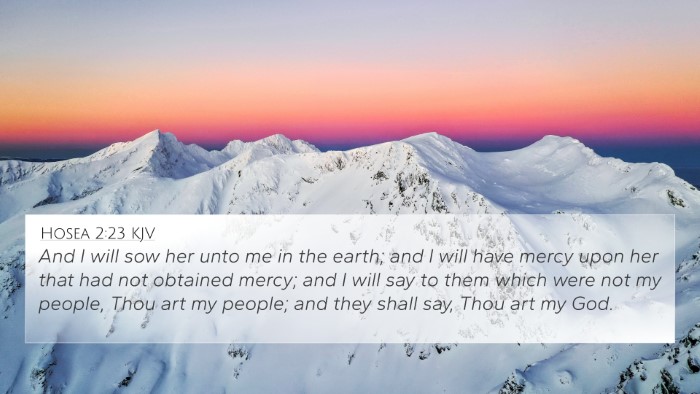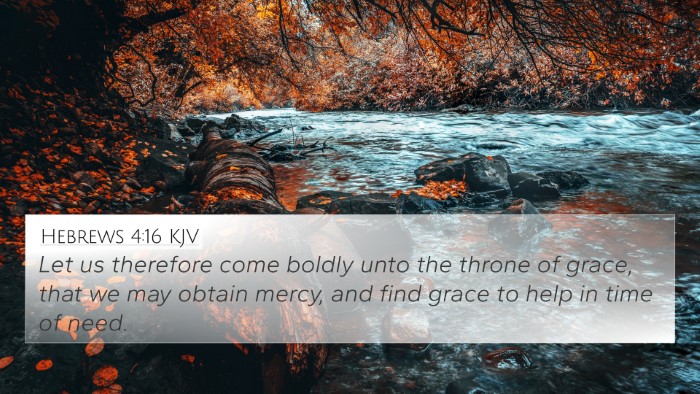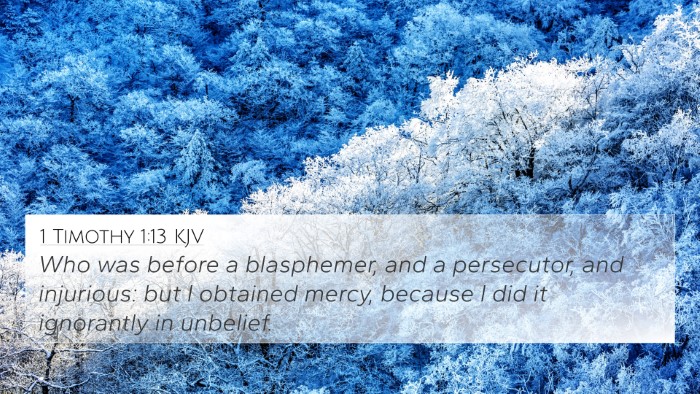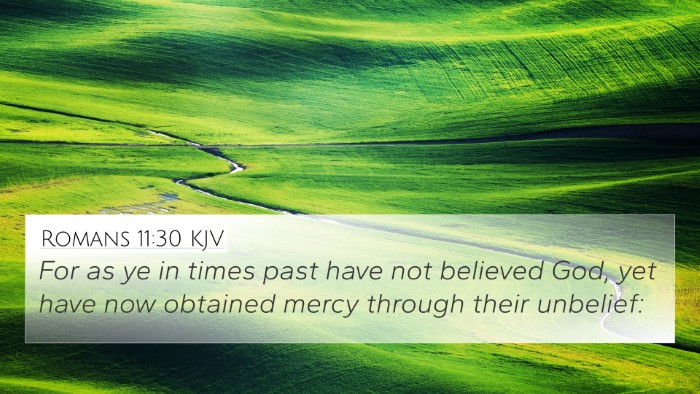1 Peter 2:10 - Understanding the Verse
In 1 Peter 2:10, the Apostle Peter emphasizes the transformative experience of believers who have been called out of darkness into marvelous light. This verse captures the essence of the Christian identity, wherein believers are referred to as a chosen generation, a royal priesthood, and a holy nation.
Verse Content:
"Once you were not a people, but now you are God’s people; once you had not received mercy, but now you have received mercy."
Commentary Insights
-
Matthew Henry: Henry denotes the significance of this verse as reflecting God's grace. Initially, the believers had a status of not being recognized as a people, but through Christ, they have become part of God's chosen. The transformation from 'not a people' to 'God's people' illustrates a deep spiritual change and highlights the mercy received through faith.
-
Albert Barnes: Barnes discusses the historical context, asserting that Peter relates to the Gentiles' inclusion among God’s people. The once excluded are now accepted into a holy nation and royal priesthood, delineating the vast change in their status due to Jesus Christ. This connection serves as an encouragement for the believers enduring trials, reminding them of their divine identity and purpose.
-
Adam Clarke: Clarke observes that the verse emphasizes the mercy of God, highlighting that the believers’ acceptance is purely out of grace. He points out that the change in identity and the reception of mercy were not earned but given freely, serving as a foundation for Christian ethics and communal life.
Biblical Cross-References
This verse connects deeply with several other scriptures that underline the themes of identity and divine mercy:
- Hosea 1:10-11: "Yet the number of the children of Israel shall be as the sand of the sea, which cannot be measured or numbered; and in the place where it was said to them, 'You are not my people,' it shall be said to them, 'Children of the living God!'"
- Romans 9:25-26: "As He says also in Hosea: 'I will call those who were not My people, My people, and her who was not beloved, beloved.'" This reinforces the idea of inclusion.
- 1 Peter 2:9: It states that believers are a chosen race, a royal priesthood, a holy nation, called to proclaim the excellencies of Him who called them out of darkness.
- Ephesians 2:12-13: Paul speaks of the Gentiles who were once far off and are now brought near by the blood of Christ, reflecting God’s mercy.
- Isaiah 43:20-21: “The people whom I formed for Myself that they might declare My praise,” emphasizing God’s purpose for His people.
- Colossians 3:12: "Put on then, as God's chosen ones, holy and beloved, compassionate hearts," which draws parallels to the identity bestowed upon believers.
- Titus 3:5: “He saved us, not because of works done by us in righteousness, but according to His own mercy,” reiterating the theme of divine mercy.
Connections to Thematic Elements
The verse aligns with major biblical themes such as grace, identity, community, and mercy. It further provides insight into the doctrinal teachings surrounding:
- Identity in Christ: Believers’ identity is not based on their past but on their acceptance of Christ, marking a new belonging.
- The Priesthood of All Believers: The term "royal priesthood" signifies that all believers have direct access to God and a role in ministering to others.
- Divine Mercy: The shift from receiving no mercy to receiving mercy emphasizes God’s foundational role in redemption.
- Community of Believers: The description of a 'holy nation' implies the communal aspect of faith, where believers are united and called to live out their faith in unity.
Practical Applications and Reflections
For today’s believers, 1 Peter 2:10 serves as a profound reminder of their identity and mission in Christ:
- Embrace Your Identity: Understanding that one is part of God’s chosen individuals can bolster self-worth and purpose.
- Live Out Mercy: Just as they have received mercy, believers are called to extend grace and forgiveness to others.
- Build Community: Recognize the importance of being part of a larger body of believers, encouraging and supporting one another.
- Declare His Praises: As recipients of divine mercy, believers should actively proclaim the goodness of God in their lives.
Conclusion
In summary, 1 Peter 2:10 captures the transformative essence of the believer’s journey from alienation to divine acceptance. The insights drawn from classic commentaries enhance our understanding of this verse’s significance and its interconnections within scripture, illustrating the rich tapestry of God’s faithfulness throughout the Bible.


